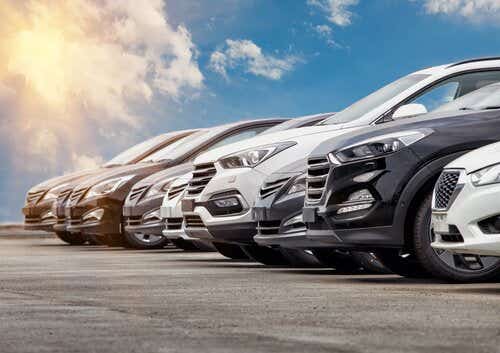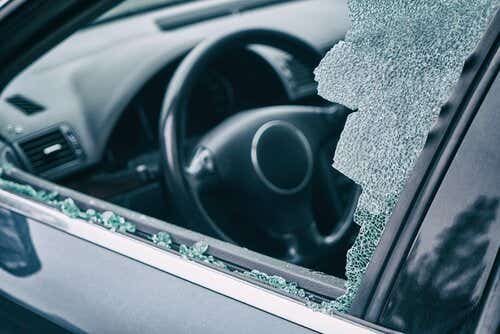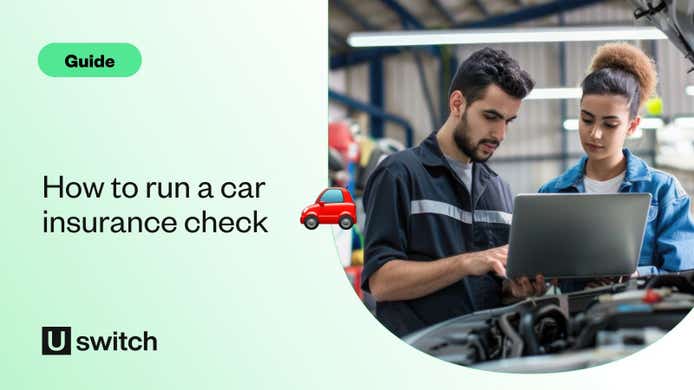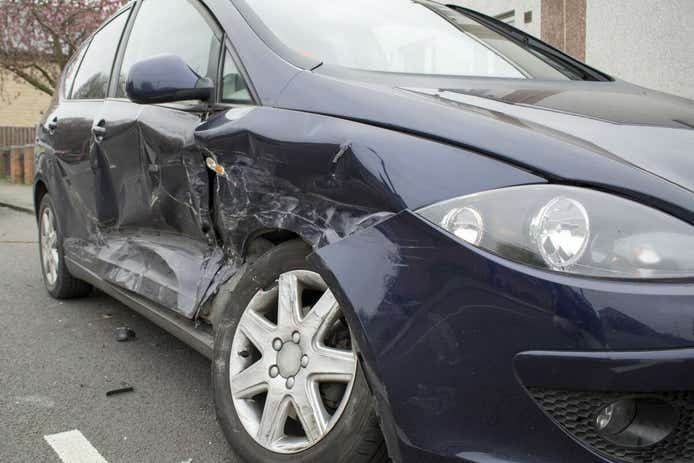What is a car immobiliser?
A car immobiliser is designed to stop a thief from being able to drive off with your car.
There are two main types of immobiliser:
Built-in electronic immobilisers
They were first introduced in 1992 and it’s been compulsory for car manufacturers to include a factory-fitted car immobiliser on new models in the UK since 1998. Embedded in the vehicle’s electronic control unit, your car immobiliser will stop the engine from starting if a thief tries to hotwire it or use a fake key in the ignition.
Mechanical immobilisers
Steering wheel locks are a type of mechanical immobiliser – they just prevent the steering wheel from being turned and need to be fixed in place each time the car is secured.
Get a car insurance quote
See a range of car insurance quotes in just a few minutes when you compare with Uswitch
What is a Thatcham-approved immobiliser?
A Thatcham-approved immobiliser is a car immobiliser that has been certified and rated by Thatcham Research, otherwise known as the Motor Insurance Repair Research Centre.
Thatcham has helped set vehicle standards for more than half a century, including for alarms and immobilisers since the 1990s.
It also rates devices such as wheel locking nuts, steering wheel locks and gear lever locks. You may come across the phrase “Thatcham device,” which refers to this full range of products, including immobilisers and alarms.
What’s the difference between Thatcham Category 1 and Category 2?
Thatcham Category 1
These are the most sophisticated security systems, combining a car immobiliser with an alarm. Category 1 devices also often have advanced features like ignition and perimeter detection along with movement, tilt and glass break sensors. A Thatcham category 1 alarm’s siren must also be powered by its own battery supply.
Thatcham Category 2
This type of system only has a car immobiliser but must meet the same technical specifications of immobilisers in Category 1. This includes that a Thatcham car immobiliser must be resistant to attack for a minimum of five minutes.
As with Thatcham alarms, the car immobiliser must also be passively set, rather than relying on any human intervention to be activated.
So, what type of alarm and/or immobiliser does your car have? If your car is relatively modern, then it should be either Thatcham Category 1 or 2. If you have a built-in alarm as well as an immobiliser, it’s Category 1. If you only have a car immobiliser then it’s Category 2.
How does a car immobiliser work?
Your car’s key contains a transponder chip that stores the car’s unique security code. When you use your key in the ignition or fob to start the car, an electronic code is sent to your car’s electronic control unit. This triggers the mechanism that allows your car engine to start.
If a thief tries to start the car without the correct key, the car immobiliser should prevent the engine from starting because a valid electronic message hasn’t been sent. Some immobilisers will put the car into a timed no-start condition if an incorrect key has been used.
Newer car immobiliser systems can use more than one code for added security and may even automatically contact security firms if someone tires to steal the car.
How does a car immobiliser affect my car insurance?
Insurers realise that a good security system greatly reduces the risk of a car being stolen, so they’re keen to know what sort of system you have in your car.
Many cars will only have an immobiliser but some will have both a factory-fitted immobiliser and an alarm from new. Older cars may not even have an immobiliser or alarm at all.
Having a car immobiliser significantly reduces the risk of your car being stolen, so a car with an immobiliser is likely to be cheaper to insure than a car without one.
A factory-fitted car immobiliser is generally viewed by insurers as being the most effective as it will be specifically designed for your car.
If you don’t have a car immobiliser because you’ve got an older car, it could still be worth getting one put in as it should cut your insurance premiums and give you peace of mind.
As immobilisers and alarms lower the risk of thieves making off with your car, insurers will adjust their premiums accordingly, charging you less if they think your car’s security system makes it less likely that your car will ever be stolen.
How do I know if my car already has an immobiliser or alarm?
If your car was sold as a new car in the UK from October 1, 1998, onwards then it will have a factory-fitted car immobiliser. If your car’s older than that, there’s a good chance it won’t have an immobiliser.
If you own a second-hand imported car, it may not have an immobiliser even if it was built a few years after October 1998 – factory-fitted immobilisers became compulsory around the world at different times.
Unlike a car immobiliser, alarms are not mandatory for car manufacturers. One way to check if your car has an alarm is simply to try opening one of the doors after you’ve locked the car.
Factory-fitted immobilisers and alarms should also be mentioned in the owner’s handbook. If you’re still in doubt, you could ask a mechanic to check the car for you.
Are immobilisers effective?
Research suggests that from the late 1990s when car immobilisers became increasingly common, the number of cars being stolen began to fall dramatically.
But car makers have had to constantly rejig security system technology to stay ahead of thieves.
Car theft is much less common than it used to be but thieves have managed to hack immobilisers from time to time – it’s been more of a problem on certain security systems.
Some researchers have claimed they can hack into certain security systems and get a car started within 30 minutes.
Security systems have become more advanced, but car owners and manufacturers can’t become complacent as thieves will always search for a weakness.
FAQS
Does an immobiliser count as a modification?
If you change your car from the manufacturer’s original specification then it can count as a modification.
Depending on the insurer, adding a car immobiliser to a vehicle that didn’t have one factory-fitted might count as a modification. But your insurance premiums should still go down anyway because you’d significantly cut the risk of your car being stolen by having an immobiliser installed.
Can I fit a car immobiliser into an older car and will it affect my insurance?
Yes, you can get a car immobiliser fitted if you’ve got an older car that didn’t originally have one factory-fitted. Getting an immobiliser for an older car should cut your insurance premiums as long as it’s a Thatcham-approved immobiliser.
How can I check if my car immobiliser works?
If you’ve got a car immobiliser, you know it works if you’re able to start the car with the correct key. If you use the wrong key, it shouldn’t allow you to get the engine running at all.
What other security devices can work alongside a car immobiliser?
Modern car security systems usually combine a car immobiliser with an alarm. Car alarms are good to have but are often considered less effective than immobilisers because sirens are often ignored when they go off.
You could also add GPS tracking – this won’t stop your car from being stolen but it means you’ll know exactly where the car’s ended up if the worst happens.




